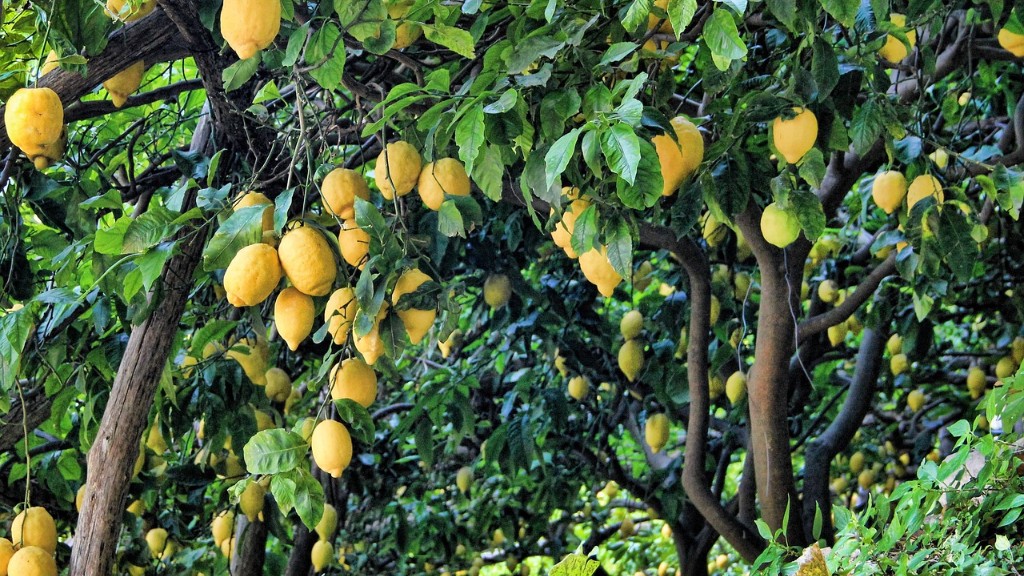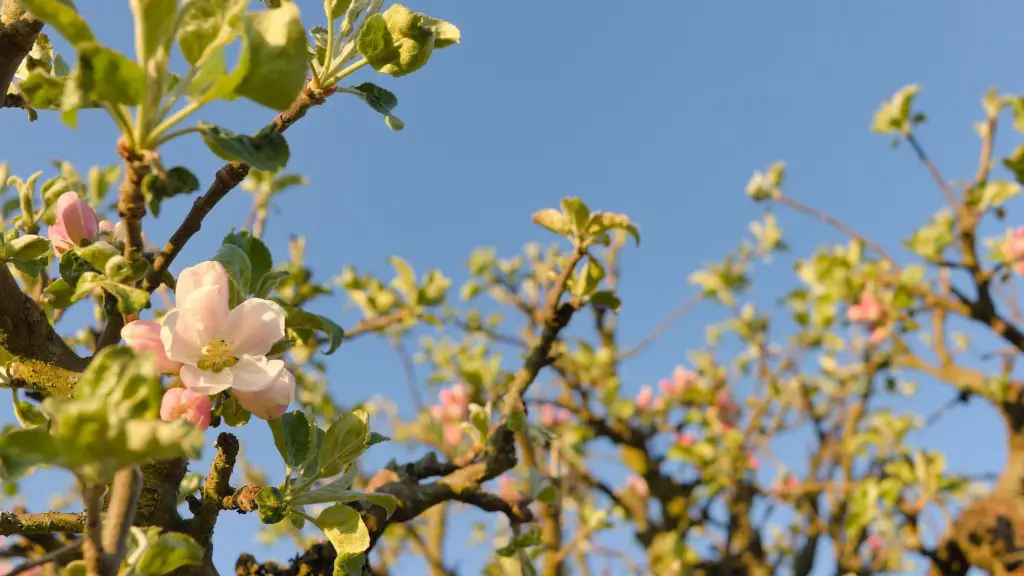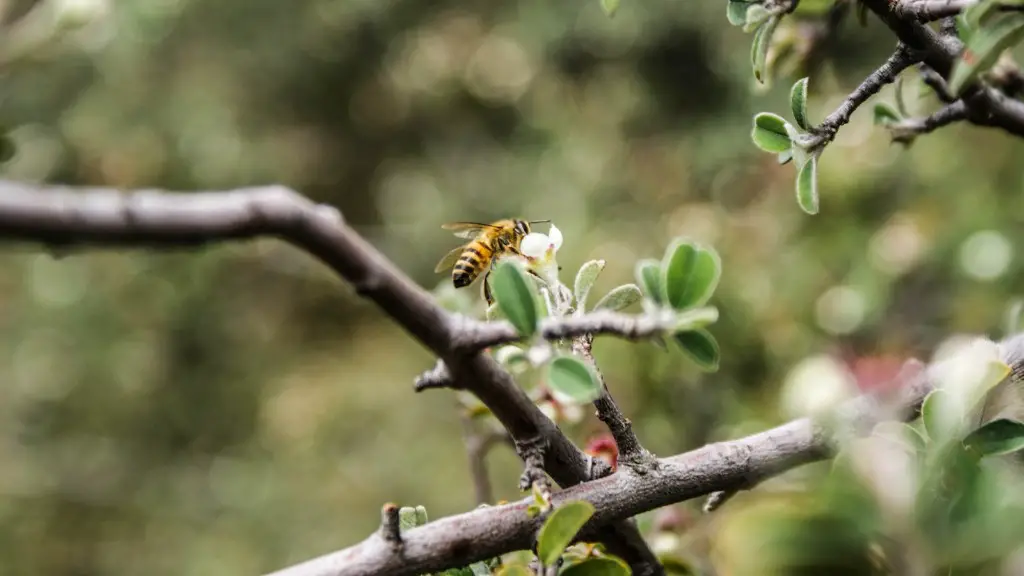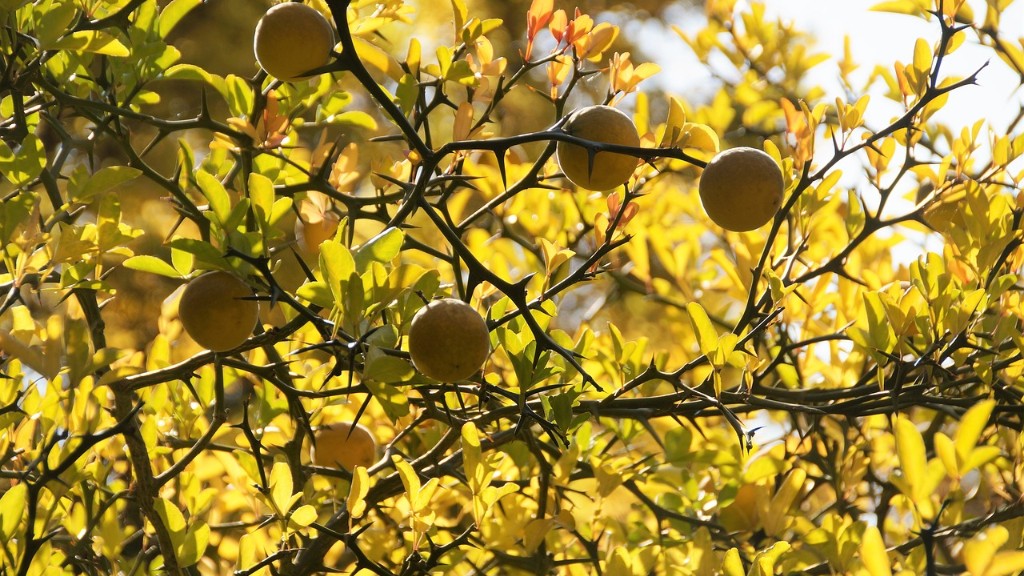How Do I Know If My Lemon Tree Is Dead?
If you’ve noticed your lemon tree isn’t sprouting much new growth, it could be a sign that it’s dead or dying. Remember, lemon trees are highly susceptible to cold-weather conditions, and even a single night of freezing temperatures can kill it. The good news is, there are several symptoms that you can monitor in order to determine if your lemon tree is still alive or has passed on.
The first symptom to look for is discoloration of the leaves. If the leaves have started to turn yellow, brown, or even black, this could indicate that there isn’t enough water reaching the leaves or the tree has been exposed to extreme cold temperatures. You may also notice that the leaves feel damp or mushy to the touch — this is a sign of water stress and could mean your tree is in trouble.
A second symptom to watch for is dead or dying branches. If you see any branches that have gone from healthy and strong to drooping and lifeless, this is a definite sign that something has gone wrong. It could be due to a lack of nutrition, extreme temperatures, or something else.
In addition to discoloration and dead branches, look for signs of physical damage. If you’ve had a lot of rain or wind in your area recently, it’s likely that the tree was battered. If the trunk or branches show signs of splits, cracks, or other signs of damage, it’s a definite sign that the tree is struggling and may not recover.
Finally, keep a close eye on your fruit production. If your tree is no longer producing fruit, or if the fruit it does produce is small, discolored, or has other problems, it’s a sure sign that your tree is not healthy.
Common Causes of Death in Lemon Trees
Lemon trees can die from many causes, but there are a few that are particularly common. Firstly, lemon trees are extremely vulnerable to cold weather. Even one night of freezing temperatures can be enough to kill the entire tree. Additionally, if the tree does not get enough water or is planted in overly wet soil, roots can rot, resulting in death. If the tree is not getting enough nutrition it may wilt and die, or if insect infestations are left unchecked, the tree may also succumb to this.
The most common mistake when it comes to lemon trees is planting it in the wrong type of soil. An unbalanced pH level in the soil can make it difficult for the tree to absorb water and nutrients. Additionally, if the soil lacks , necessary trace elements or toxins like heavy metals find their way into the soil it can also adversely affect the tree’s health.
Another issue is pruning at the wrong time of year. Pruning should only take place after the frost season is over, as cutting too much of the tree’s foliage can make it more susceptible to the cold. Finally, citrus greening disease is an expanding problem in the US, and can wipe out an entire lemon tree without proper care.
Preventing Death in Lemon Trees
The key to keeping your lemon tree alive is prevention. Plant your tree in well-draining soil and water it regularly. To reduce the chances of insect infestation, introduce beneficial insects like ladybugs and bumblebees, which will help naturally combat any unwanted pests. Additionally, be sure to check for signs of citrus greening—if you do notice any scaly lesions on the leaves or branches, contact a local arborist for help.
Finally, ensure you prune the tree correctly. Prune only when the frost season is over and only take off sections that are overgrown or dead—never take off more than 20% of the foliage in a single pruning session. With proper care and maintenance, your lemon tree should last for years.
Providing the Right Care
The key to keeping your lemon tree healthy and strong is providing the right kind of care. The first step is to make sure it’s planted in a sunny and sheltered location to help it resist cold weather. Additionally, in soil that is rich in organic matter and lightly-fertilized. During the summer and winter, keep an eye on the water levels—the tree should be watered once a week in the summer and once a month in the winter.
To ensure the tree stays strong and healthy, consider adding organic compost or manure to the soil every few years. This will help maintain the soil’s pH levels and add important nutrients to the soil. Take care to provide adequate drainage for the tree, or else it may suffer from root rot or other problems.
Make sure to check the tree for signs of pest damage. If you do notice any evidence of insects, contact a local arborist for help. Insects can quickly cause irreversible damage to your lemon tree and should be addressed at once.
Finally, consider pruning your tree in order to maintain its shape and size. Prune only at the right times according to your area and only take off small amounts of the tree’s foliage each time. Remember, pruning too much too quickly can shock the tree and cause it to die.
Protecting Your Lemon Tree From Cold Weather
Given the fact that lemon trees can’t survive cold weather, it’s important to take the necessary steps to protect your tree during the winter months to reduce the chances of it dying. Firstly, make sure to cover the tree with a thin blanket on cold nights. You can also add organic mulch or hay to the soil to create an extra layer of insulation for the tree’s roots.
If possible, make sure the tree is planted in a spot that is not subject to strong winds. Make sure to keep the tree adequately watered during the winter months, particularly during bouts of hot weather as this can cause stress on the tree. Additionally, be sure to check for signs of disease or insect infestations and address them as soon as possible.
Finally, if you have extremely cold winters, consider applying an anti-desiccant to the leaves and branches of the tree. This will help insulate the tree and reduce the chances of it dying in a single night of extreme temperatures.




